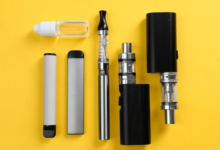Does Cbd Show up in a Pee Test

The potential for CBD to appear in a urine drug test is a nuanced issue. Standard tests primarily target THC, not CBD. However, the presence of trace THC in some CBD products complicates matters. Various factors, including product type and usage frequency, can influence test outcomes. Understanding these intricacies is essential for users concerned about drug testing repercussions. What implications do these factors hold for CBD consumers in practical scenarios?
Understanding CBD and Its Composition
Cannabidiol (CBD) is a prominent phytocannabinoid derived from the Cannabis sativa plant, known for its therapeutic properties without the psychoactive effects commonly associated with tetrahydrocannabinol (THC).
The benefits of CBD include potential relief from anxiety, inflammation, and pain, contributing to its increasing popularity.
As for legality, CBD derived from hemp is federally legal in many jurisdictions, enhancing its accessibility for consumers seeking natural alternatives.
How Drug Tests Work
Drug tests are designed to detect specific substances in a person's system, primarily focusing on compounds that can impair judgment or physical capabilities.
Various drug test types, including urine, blood, and saliva tests, employ distinct testing procedures to analyze samples.
These tests target metabolites or active substances, ensuring accurate identification of illicit usage and adherence to safety regulations in workplaces and other environments.
Factors That Influence Test Results
The accuracy of drug test results can be influenced by a range of factors, including the type of test administered, the timing of the test in relation to substance use, and individual physiological differences.
Test sensitivity plays a crucial role in detecting CBD metabolites, which may vary among individuals.
Additionally, the dosage and frequency of CBD use can significantly impact the presence of metabolites in urine.
Best Practices for CBD Users Facing Drug Tests
How can CBD users navigate the complexities of drug testing while minimizing the risk of a positive result?
Users should opt for broad-spectrum or isolate CBD products to avoid THC.
Monitoring CBD dosage is crucial, as higher amounts increase detection risk.
Additionally, understanding specific testing methods, such as urine analysis, can help users make informed choices and reduce anxiety surrounding potential test outcomes.
Conclusion
In conclusion, while CBD itself typically does not show up on standard urine drug tests, the presence of trace THC in some products can lead to unexpected positive results. Coincidentally, many users seeking the therapeutic benefits of CBD may inadvertently jeopardize their drug test outcomes by choosing the wrong product. To mitigate this risk, individuals should prioritize THC-free options, such as CBD isolate or broad-spectrum formulations, ensuring they align their wellness choices with their professional obligations.






